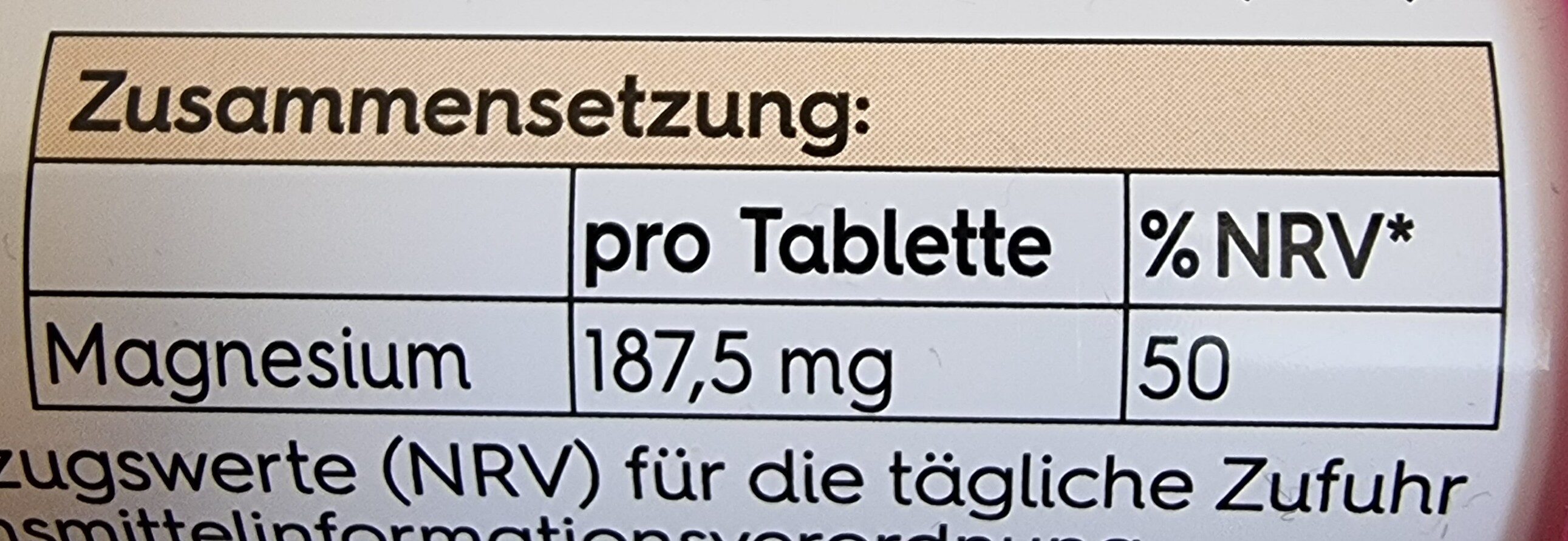Magnesium-Brausetabletten - BI Life - 82 g
This product page is not complete. You can help to complete it by editing it and adding more data from the photos we have, or by taking more photos using the app for Android or iPhone/iPad. Thank you!
×
Barcode: 9010592000129 (EAN / EAN-13)
Quantity: 82 g
Packaging: Plastic
Brands: BI Life
Categories: Dietary supplements
Labels, certifications, awards: No gluten, Vegetarian, Vegan, No lactose
Stores: Bipa
Countries where sold: Austria
Matching with your preferences
Health
Food processing
Additives
Ingredients analysis
The analysis is based solely on the ingredients listed and does not take into account processing methods.
Serving size:
4.1g
⚠
️Serving size is too small (5 g / 5 ml or less) to calculate 100 g / 100 ml values and perform any further nutritional analysis








